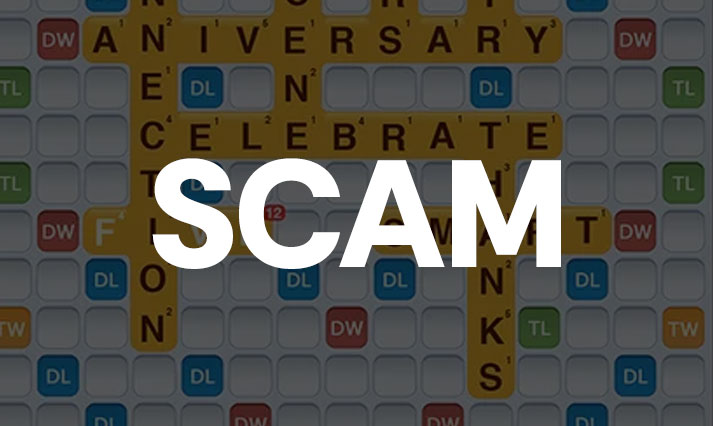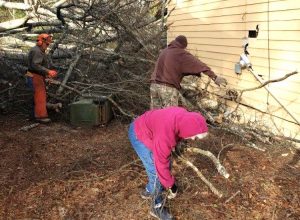In our previous iterations we have covered scams relating to complex computer and gift card scams, and another woman who was led to believe that her bank had been compromised. We also talked about how to avoid banking scams and getting scammed at crypto ATMs. But what about relationship scams?
Lonely people want to believe that their new friend they met online is legit. Some of those scams start by text, according to Det. Michelle Taylor of the Peachtree City Police Department, when people send out a text that appears to be a wrong number and then strike up a friendship. “They gain the trust of someone by ‘accidentally’ texting them and then they build this relationship.”
The sickness of scammers is for real. Det. Taylor warns that scammers scour the obituaries and public records of deaths to find hurting people who are lonely after the funeral. “They’re left widowed or they may have come into quite a bit of money through life insurance and they’ll long play, whether it takes months or just a couple of weeks for them to get to send them money. But they build a friendship with them, whether it’s romantically or just conversational. That’s what they do. And they almost verbally saturate them with compliments and how friendly they are. And sooner or later, you don’t realize that couple hundred here to help them out or a couple hundred there turns into thousands. And we had one man who refinanced his house to continue to send a woman money, he thought was a military member who needed to send money to her daughter in the US.
“By the time I could convince him of it, he had hundreds of thousands gone and I had to physically bring over the documents. I had to show him that the email that this person was emailing from was from Nigeria. And we’re finding that these non-treaty countries are the ones that they’re being based out of China, Russia, parts of Africa, other parts of Asia. And that’s where we’re finding a lot of our phone calls are coming from,” explained Det. Taylor.
Using Voice Over IP, or VOIP can make someone look like they are calling locally even though they are in a different country. “So someone from another country can basically sign up for a US phone number that is through the wifi or through their internet. It looks like it’s coming from the us but really it’s originating from their home country, which is outside of our jurisdiction. And that’s what makes it really hard. And even it makes it difficult for agencies like the FBI to go after people like that.”
And some people don’t report their crime, like my friend Dawn* and her mom Barbara* (*names changed.) Barbara, a woman in her mid-70s who lives in Tyrone, met a new friend online playing Words with Friends.
According to Dawn, this person had her mom convinced that he was in love with her. “A conversation was struck up with someone who she was told was an American citizen working on an oil rig off the coast of Dubai. And he had an adopted son here in Peachtree City who his nanny was taken care of. His assets were frozen. He had no access to his bank account and so he couldn’t get food for himself, and he couldn’t send money to the nanny to take care of his adopted son,” explained Dawn. He had Barbara thinking he was going to come back and marry her, and buy them a house in Cresswind. The scammer had done his local neighborhood homework.
Barbara never spoke to her “love,” as he claimed the lines weren’t working. He asked for money little by little, until Barbara, who lives on an incredibly limited fixed income, had given him over $3500—money she really could not spare—wired out via Western Union.
Dawn knew her mom was being catfished. She knew it was a scam. But she couldn’t get her mom to believe her. Dawn got the name of this person from Barbara and she did an internet search. She found that man’s name and photo associated with a person who died in Fayette County some five years previously. “The whole heart heartstrings to tug story was made up,” said Dawn.
Finally, her mom believed that she’d been had. But she was too embarrassed to report it, saying she didn’t want to be an “old lady victim.” Dawn believes, based on a conversation with her mom, that her mom was catfished once before this time, and so there’s always the question of whether this is the same people hitting her again, because they know Barbara is an easy mark.
Dawn and Barbara didn’t hang onto the Western Union tracking information, or the local phone number that Barbara got texts from—in fact, Dawn blocked that number and deleted the contact from Barbara’s phone. She also deleted the Words with Friends app.
According to the Fayette County Sheriff’s Department’s Captain Brian Lee, who assigns cases to be handled, even if Barbara and Dawn had reported the crime, “We have very few of the suspects who are arrested, very few are Fayette County residents. Most fraud offenders or suspects are not citizens of Fayette County.”
What enables Capt. Lee to investigate is this concept of venue—if the financial crime happened to someone in Fayette County—as in, they sent their money from Fayette County—the Sheriff’s Department can investigate.
But it’s essential to have information for them to investigate. So Captain Lee gave us tips for what to gather if you think you got scammed.
First off, they can only really investigate if the criminals are located in the US—it’s other agencies if the criminals are overseas. Capt. Lee said, “Fraudsters are literally everywhere around the globe. A lot of them are in the US and a lot of ’em are overseas. And it’s a lot of, in some cases, it’s more than likely a state sponsored group of fraudsters, meaning that the country is so poor and bad off that they perpetrate crimes at the behest of the government. And then you have bad actors that are just right up the street. So they’re everywhere.”
In order to have the best chance of getting your money back and seeing the criminals get punished, Capt. Lee says you need to keep ALL the numbers: numbers you were called from, addresses you sent money to, email addresses you were contacted from, social media accounts that reached out to you. If you’ve been gift card scammed, even the gift card numbers can be trackable. Without that data, the Fayette County Sheriff’s Department has nothing to investigate.
What else is helpful to Capt. Lee and the Sheriff’s Department—bank records. He said, “I want any and all of their bank records, if they didn’t do flat out cash, if they used their debit card or their credit card, a victim by law has a right to their account information. If we request account information from a financial institution, we’re going to get the legal runaround and it can take months. So for example, if Ellie tells me she’s missing $2,000 from her Bank of America account, if I ask Bank of America for that information, they’re not going to give it to me. I’m going to have to go through a process. But Ellie can walk in the branch and say, I want a printout of my last 30 days or 60 days whenever the charges were there.”
Consumers can advocate to get their own records to share with the police departments. Getting those records quickly makes all the difference. “It’s the difference in getting money back, not getting money back, and having evidence and having no evidence,” said Capt. Lee.
Sometimes, it’s not through a bank account or gift cards, but rather people using apps, and Capt. Lee wants the details if you want an investigation of your crime. “If you gave some sort of gift card number or Venmo or Cash app, all of those numbers and accounts and times locations are important. So if you use any of the cell phone pay apps, all of that information.”
Playing on sympathy is a big scammer red flag. It could happen by someone who is pretending to be a new friend. Or it could happen by someone pretending to be an actual relative. They may even use AI to SOUND like a relative.
PTCPD’s Det. Taylor said, “We’re getting the granddaughter-grandson schemes. They’re saying, ‘Oh, grandma, I got into a car accident, and I broke my nose.’ They’re not doing a very good job of trying to mask voices. They’re just giving a situation in which I don’t sound the same because something happened to my nose, or ‘I’m in the hospital and here talk to my lawyer,’ and then they hand the phone off to someone, or they just call and say, ‘I’m the lawyer for your grandson.’”
Then that person says that the grandson has been arrested, or he’s been in a car crash and is injured. Detective Taylor sees an insidious one where they tell grandma “The person he has hit has died and it turns out she was pregnant.”
Relationship scams are harder to crack than the fake accident scams, says Det. Taylor, “Here’s the thing that really we struggle with is the police department. These scammers have built up such a relationship with these people. It’s harder for them to believe us as law enforcement that this is fake than to believe that these scammers who have befriended them are lying to them.”
Detective Taylor referenced another case. “I’m trying to plead with this woman to stop giving. At this point, it’s over almost $200,000 that she’s not going to see back because she gave it away in crypto and we traced it, and it’s overseas. Once it hits out of our jurisdiction, out of our borders of the US, there’s very, very, very little we can do to get that back.
“Now, we as a department have had a lot of success with working with larger cryptocurrency exchanges like the big ones like Binance. However, they’re getting a lot more stringent, and it takes a lot of paperwork, and it’s taken a lot of going back and forth. And our judges in the area have become very educated in cryptocurrency so that they can better understand when we come to them and say, we need to freeze this account. What’s the legality? What can they do? What can we do? And that all takes a lot of time and a lot of manpower and paperwork to maybe get 1%, 2% back for these victims.”
Detective Taylor suggests that having Harry Schaeffer with the auxiliary police come out and present to your church or civic group for free about fraud and scams is a great way to get the word out there. Contact the Peachtree City Police Department on their non-emergency line for details, 770-487-8866.













Leave a Comment
You must be logged in to post a comment.